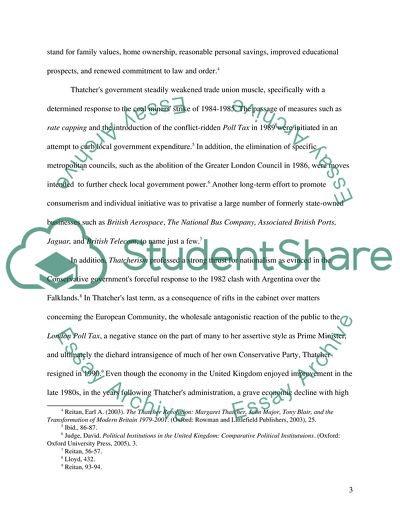Cite this document
(The Politics of Thatcherism Essay Example | Topics and Well Written Essays - 2000 words, n.d.)
The Politics of Thatcherism Essay Example | Topics and Well Written Essays - 2000 words. Retrieved from https://studentshare.org/politics/1703782-politics-what-was-thatcherism-in-what-sense-was-it-radicalor-conservative
The Politics of Thatcherism Essay Example | Topics and Well Written Essays - 2000 words. Retrieved from https://studentshare.org/politics/1703782-politics-what-was-thatcherism-in-what-sense-was-it-radicalor-conservative
(The Politics of Thatcherism Essay Example | Topics and Well Written Essays - 2000 Words)
The Politics of Thatcherism Essay Example | Topics and Well Written Essays - 2000 Words. https://studentshare.org/politics/1703782-politics-what-was-thatcherism-in-what-sense-was-it-radicalor-conservative.
The Politics of Thatcherism Essay Example | Topics and Well Written Essays - 2000 Words. https://studentshare.org/politics/1703782-politics-what-was-thatcherism-in-what-sense-was-it-radicalor-conservative.
“The Politics of Thatcherism Essay Example | Topics and Well Written Essays - 2000 Words”. https://studentshare.org/politics/1703782-politics-what-was-thatcherism-in-what-sense-was-it-radicalor-conservative.


